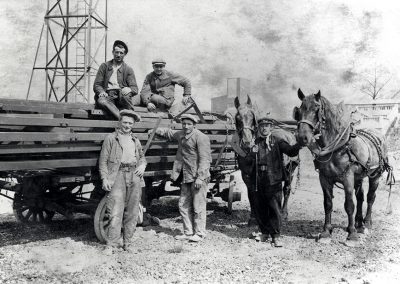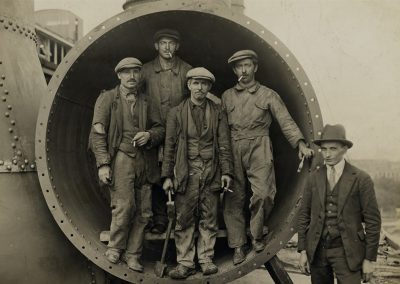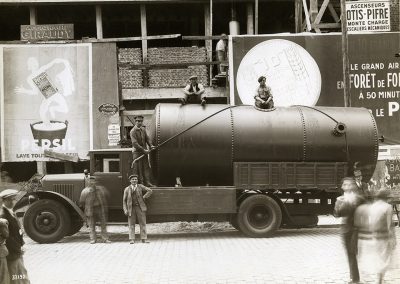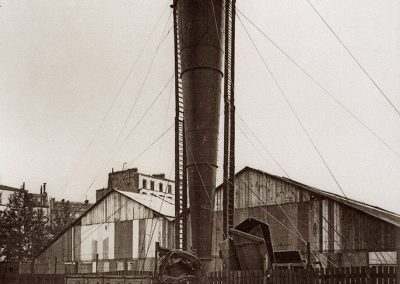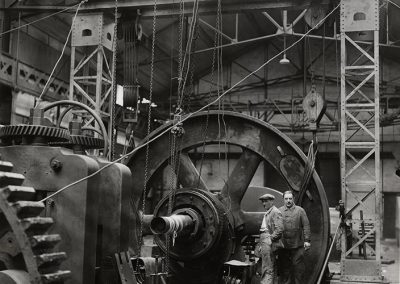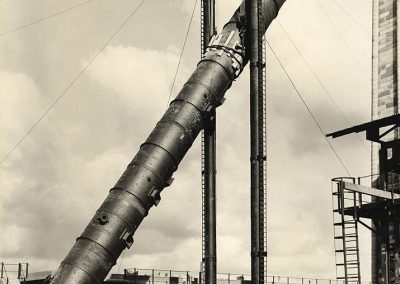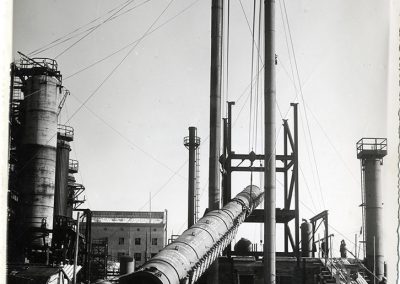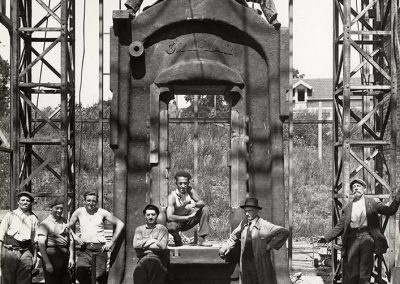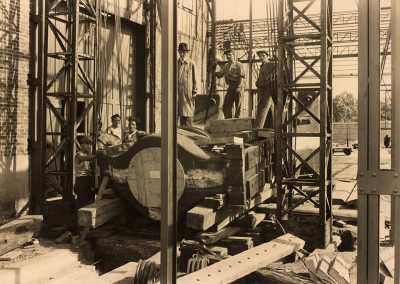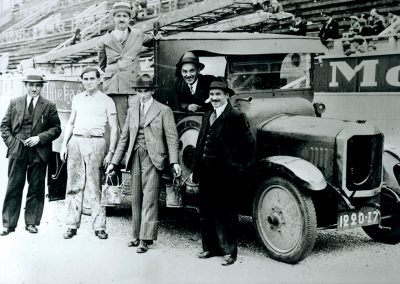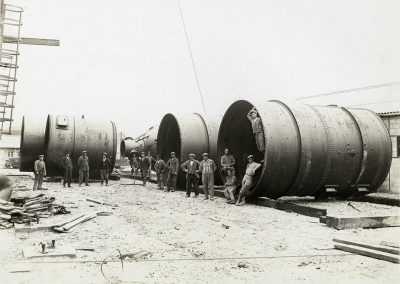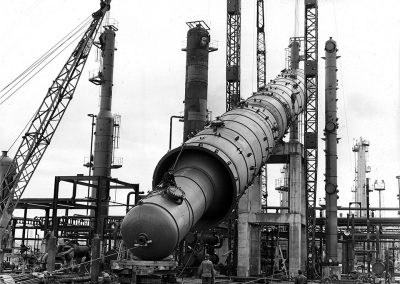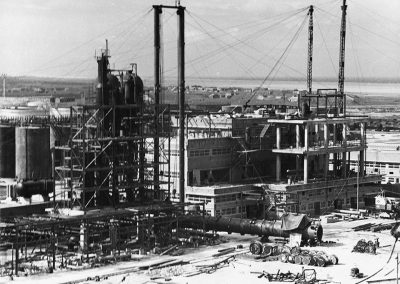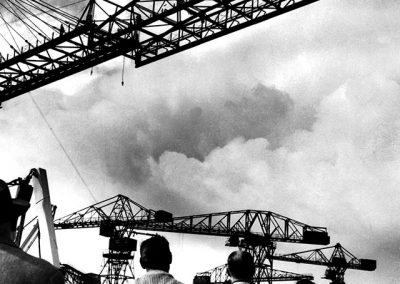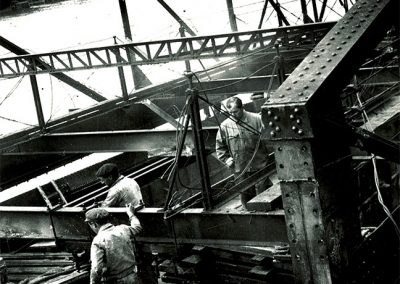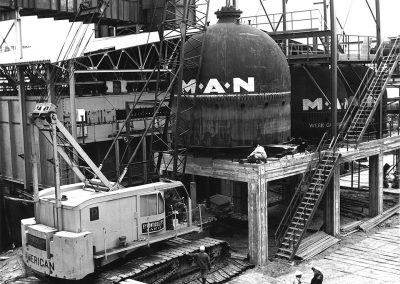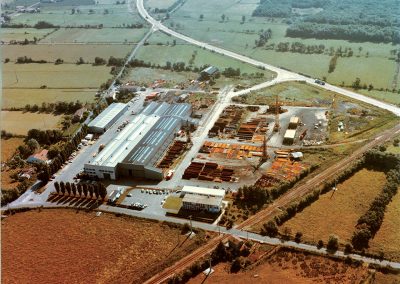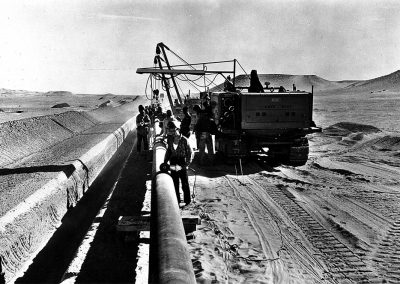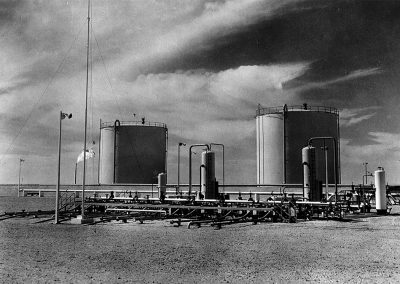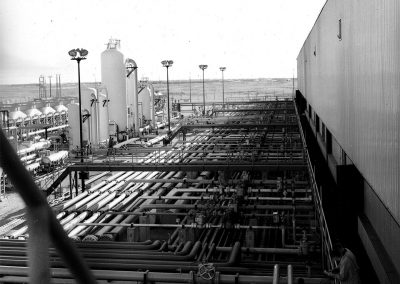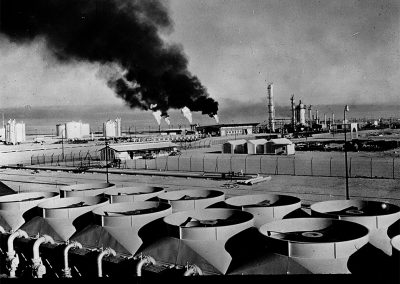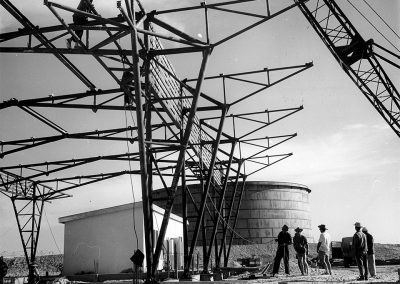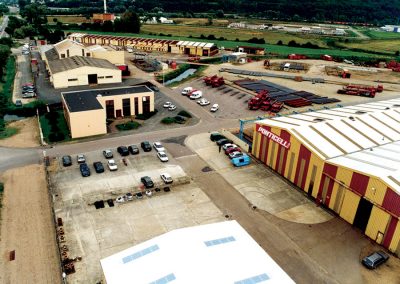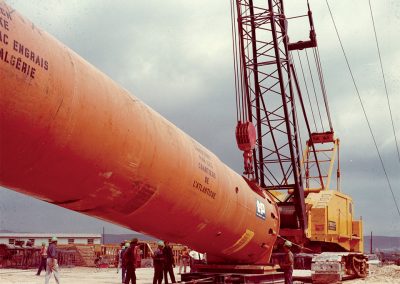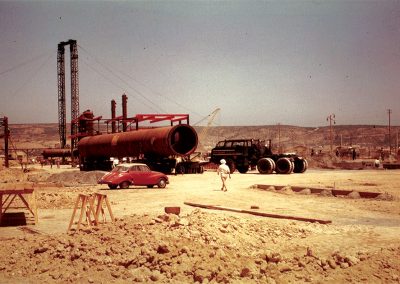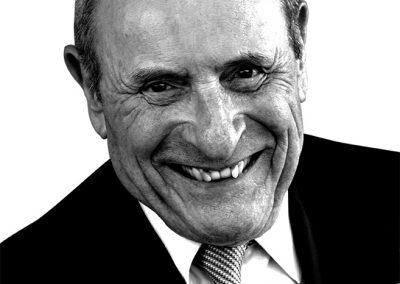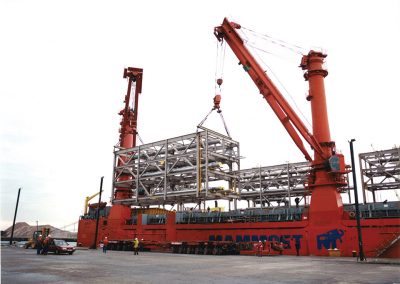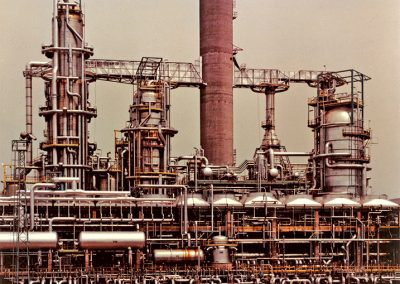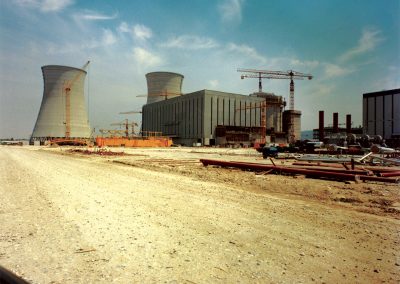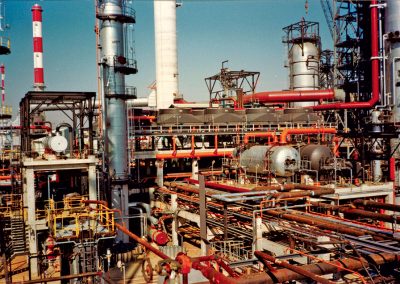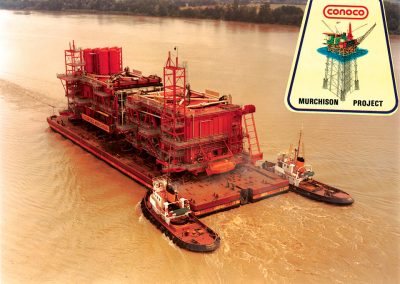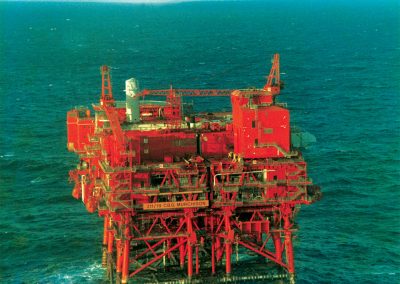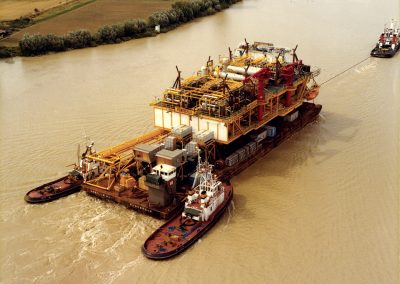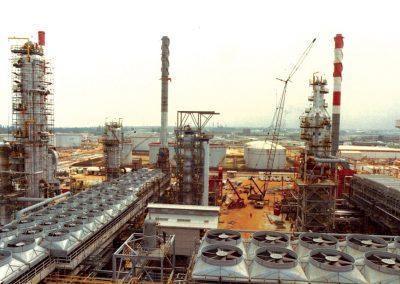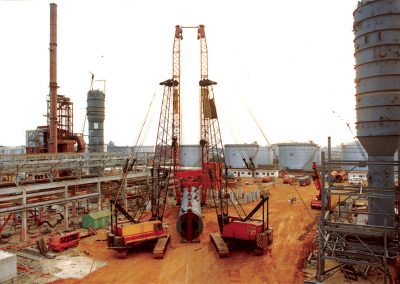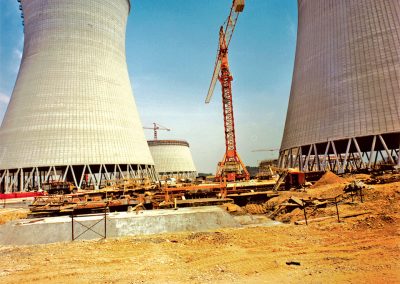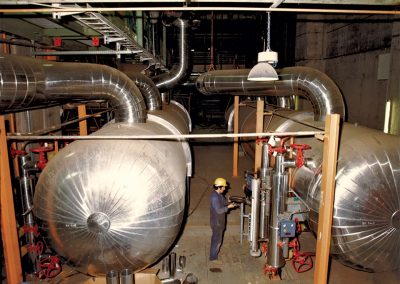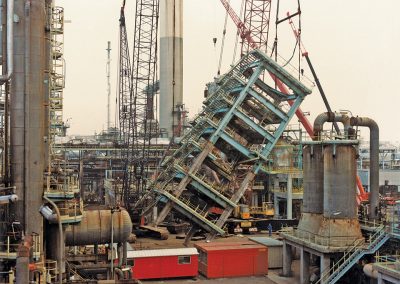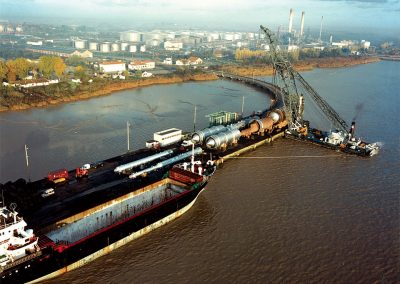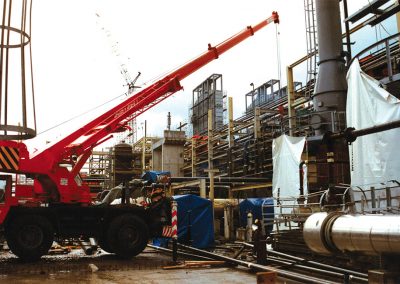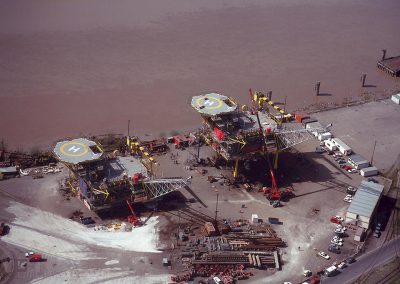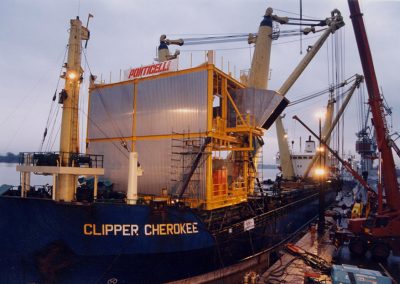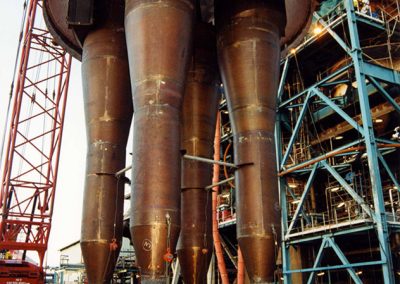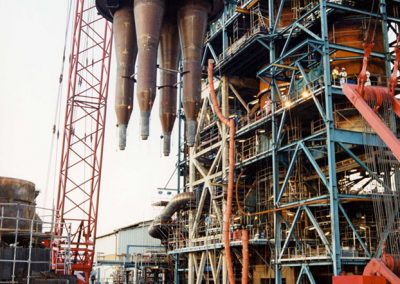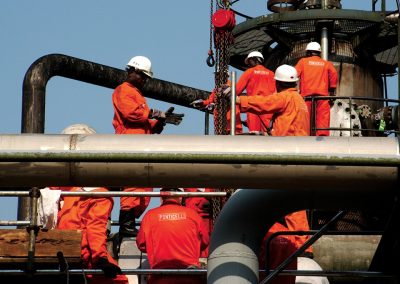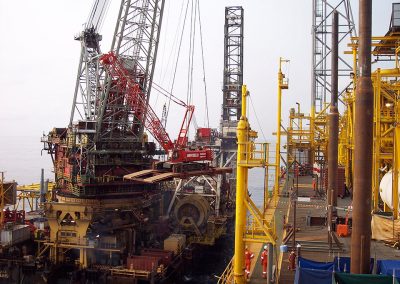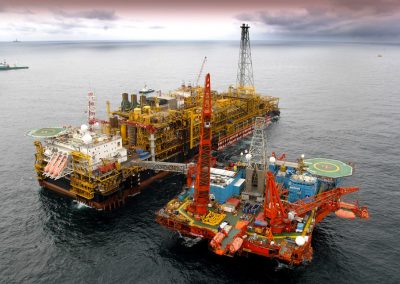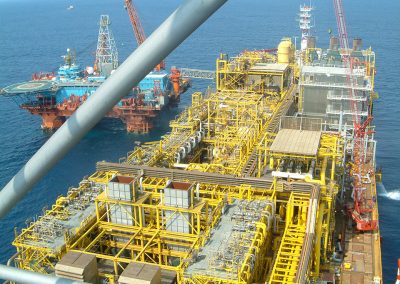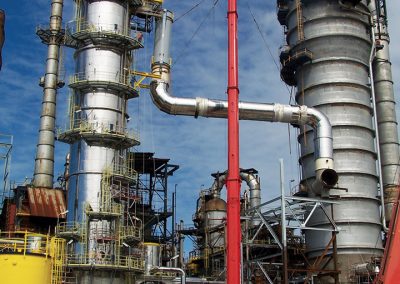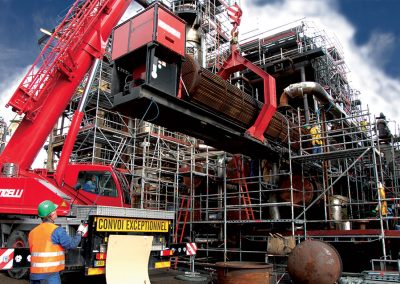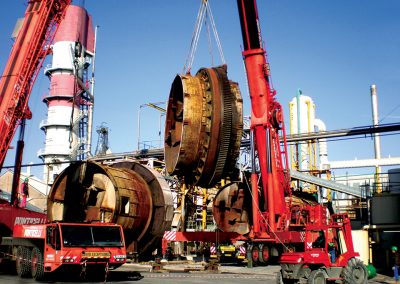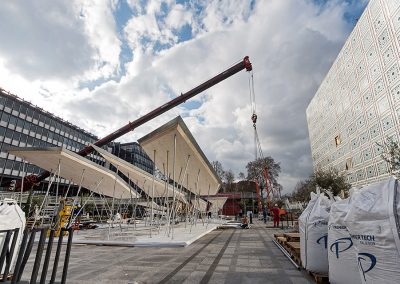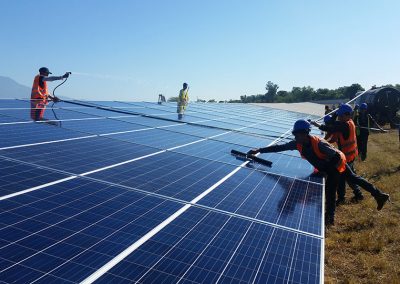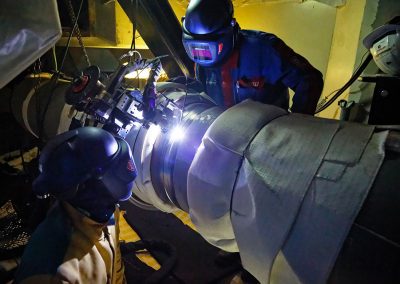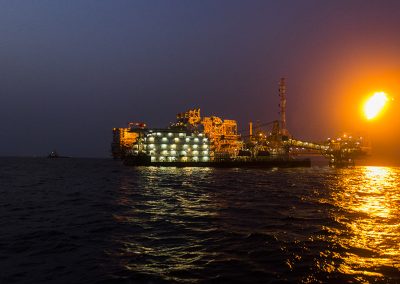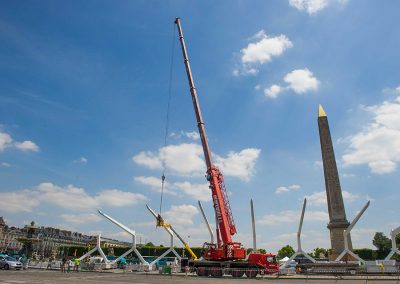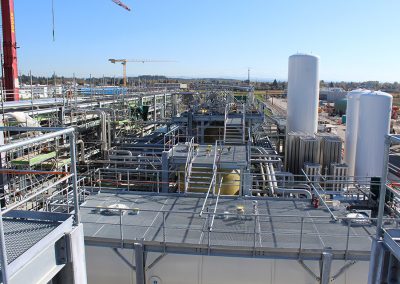Our history
Ponticelli’s history begins with a story of 3 brothers who by courage, hard work and audacity founded a great company from nothing.
Human history, teams of workers, technicians, engineers and managers, all passionate about their trades, then strengthened the company throughout the years, winning their client’s and partner’s trust by their efficiency and sense of service.
It is still today a story of a family structure, supported by employee shareholding, with strong ties to its roots, that is forging its success towards the future in total respect of its founders’ motto: “Union, work, wisdom”.
After fighting for freedom during the Great War and leaving their native region of Emilie Romagne, the three brothers Céleste, Bonfils, and Lazare worked as stonemasons on chimney cleaning and repair worksites. Driven by Céleste, the eldest, they decided to join ranks to increase their income in order to bring their families to France. “Ponticelli Frèresʺ came into being on the 5th November 1921.
Céleste had an excellent head for business and remarkable negotiating qualities, which were a real asset in business. His two brothers demonstrated extraordinary strength and physical endurance. Between the three of them, they were ready to take up any challenge.
The worksite located on the famous clothing store “Belle Jardinière” proved to be just that. A chimney needed to be dismantled and replaced with a new one, without causing any damage or dirt. Fair enough! The workers had to pass over the roofs without setting a foot in the store. That made the work a little more complicated but met exactly the clients’ requirements. The three brothers proved their efficiency and were handsomely rewarded.
After intervening on large building and factory chimneys, the new company gradually became specialised in lifting-rigging activities. Throughout the years it handled increasingly heavy equipment and expanded its activities all over France, mainly to petrol refineries at Port-Jérôme, Berre-L’Etang, Frontignan, Pauillac, Nangis…
The second world war broke out and activities slowed down significantly. The company stagnated whilst enduring the events.
Key dates:
- 1921 : The company was founded
- 1930 : Establishment of the first registered office, 69 avenue d’Ivry in the 13th arrondissement in Paris
- 1937 : The three brothers, Céleste, Bonfils and Lazare, were naturalised
- 1938 : Berre l’Etang project, Shell refinery, first project outside Ile-de-France (greater Paris region)
1963-1964
Arzew site in Algeria – Prefabrication and lifting/rigging of pipes for all types of fluids
After the war, the take-off was slow. The turning point came from 1950 onwards. With the Marshall plan industrial reconstruction in France accelerated, particularly with the rebirth of the oil industry, the French refineries having been significantly destroyed during the conflict. The United States brought in their technology and mobilised their engineers in the search for national partners. With his remarkable head for business, Céleste strived to increase the cash flow in order to reply to numerous bids.
Under the management of Roger Large, an engineer who gained experience working for Shell and became Lazare’s son-in-law, Ponticelli started its industrial piping activities in petrol refineries.
In 1950 Ponticelli opened a branch near Dunkerque in order to take part in the construction of BP’s refinery. This consisted of lifting works but also a large part of piping prefabrication and fitting. This contract proved to be a trampoline for the company’s development.
Orders began to flow in. The company had to increase its resources by creating local branches, such as at Fos-sur-Mer. More proximity was constantly needed to better serve the clients. But investments in equipment were also needed: cranes, lorries, handling equipment. Here, once again, Céleste’s interventions were decisive.
The results were there to see. Oil companies such as Caltex, Esso and Shell were now calling upon Ponticelli. As were other major contractors such as EDF on the Ambès plant or local authorities such as Nantes for the dismantling of a transporter bridge, a famous work of art from the 19th century which was no longer needed.
This was a memorable project during which René Ponticelli, Bonfils’ son, confirmed his passion for the industry and the company that he would lead from 1967 after 10 years’ experience as a works engineer.
The family company had proven its worth. Demands came from the four corners of the mainland. However, they also came from overseas, because it is important to follow clients wherever they need us. So, they crossed the Mediterranean Sea to go to Algeria. First stop, Hassi Messaoud, to work for Total’s ancestor la Compagnie Française des Pétroles, an impressive production plant, and where they had to cope with the blazing heat of the Sahara. The construction of a huge ammonia and nitrogen fertilizer plant at Arzew near Oran came next.
Key dates :
- 1950 : The beginning of industrial piping under the management of Roger Large
- 1955 : The creation of regional agencies began
- 1958 : Dismantling of a transporter bridge at Nantes
- 1959-1969 : ’Hassi Messaoud project in Algeria, the first overseas construction site
- 1967 : René Ponticelli was nominated General Manager
- 1968 : First large general refinery shutdown for Shell at Cressier in Switzerland
At the beginning of the 1970’s, the first oil crisis modified state strategies in energy independence. This provoked two important movements, the construction of offshore rigs to develop subsea reservoirs and the accelerated construction of nuclear plants.
The construction of these new industrial facilities proved to be impressive human and technical challenges. It also provided Ponticelli with some great opportunities to illustrate its audacity and efficiency, which in turn led to the growth of the company and its reputation.
The offshore projects took the company out of its boundaries to the North Sea, the Mediterranean Sea and off the African coasts in the Gulf of Guinea. The nuclear program launched by EDF mobilised hundreds of employees all over France and its strict requirements contributed to the company’s progression by the creation a design department and the strengthening of its quality processes.
In order to consolidate its position on the French territory, the company became regional by creating agencies near its clients. It was not just a matter of ensuring a commercial presence, as this generated the local resources needed for high quality services: recruiting, training and investing in equipment. The agencies, located as close as possible to production facilities, provided the necessary sustainability and agility to optimise availability, whether for simple maintenance operations or major shutdowns.
Throughout the period 1970-1990 a modernisation of facilities took place within the refining industry to increase capacities or to comply with standards while restricting investments. These interventions on “in service” facilities, baptised revamping, needed great versatility and even more stringent safety measures than normally required. To reduce the time that the facilities were unavailable they also required great agility and perfectly controlled execution. This activity became one of Ponticelli’s specialities.
Finally, these twenty years profoundly transformed the company. Thanks to all these projects it acquired new trades and technologies. It expanded its skills, processes and organisation. It strengthened its local agencies in France. By controlling its development, it made both a human and technological turning point and became an essential partner in the energy industry in France.
Key dates:
- 1972 : First revamping on the Sud Ouest refinery at Collombey Muraz
- 1973 : Ashtart project in Tunisia, first offshore contract
- 1975 : First large project in a nuclear plant, for EDF at Bugey in l’Ain
- 1976 : First large maintenance contract for Total, at Gonfreville-l’Orcher and creation of the first subsidiaries
- 1978 : Acquisition of the new head office, 5 Place des Alpes, in the 13ème arrondissement in Paris
- 1981 : SIR, at Abidjan, Ivory Coast, first large project in sub-Saharan Africa
At the turn of the 20th century, as the French industry matured, it became more important to secure, sustain and maintain rather than to build. At that moment clients preferred to outsource a certain number of tasks. This was the case particularly for mechanical maintenance in large refineries. Ponticelli, which since the very beginning had carried out routine interventions in this domain, therefore strengthened its skills and its ability to deal with all trades and became a significant player in industrial maintenance. This strategy paid off. Numerous multiannual contracts were signed and a perfect control of shutdowns was acknowledged.
At the same time the historical know-how in lifting and handling, pushed to its limits by the oil industry, was also applied to major infrastructure projects. It led to interventions in a variety of places such as an SNCF railway station, Disneyland’s theme park and the Stade de France stadium.
This strategy of diversifying activities was conducted by adapting internal organisation and reinforced by the acquisition of companies which were experts in their domain, mainly in design but also in piping, lifting, maintenance…
If construction activities slowed down during this period in France, projects multiplied abroad in Africa, Asia and the Middle East.
Ponticelli therefore followed its clients wherever they went to help them take up their industrial challenges. Backed by significant experience acquired in Europe, the company took part in increasingly large and complex projects such as EPC contracts (Engineering, Procurement and Construction) for which it provided “turnkey” services ranging from design to commissioning.
With sustainability in mind, where activities were intense and long-term, for example in Angola or Nigeria, Ponticelli did not just want to intervene occasionally. The company settled in the county by creating a subsidiary and local jobs in order to develop its recurring construction and maintenance activities.
Therefore, throughout the years, by acquisitions in France and in Europe and by creating subsidiaries abroad, the Ponticelli Frères Group gradually came into being.
Key dates:
- 1997 : Creation of Ponticelli Nigeria
- 1998 : Nigeria project, the first major “turnkey” projects in Africa
- 2005 : Creation of Ponticelli Angola
- 2006 : The Rosa project, Angola
Today Ponticelli Frères continues its journey.
Almost a century later the small family company has become a group recognized for its services to industry, is located in 14 countries and accompanies its clients all over the world in the design, execution and maintenance of their production infrastructures, guaranteeing long-term safety, availability and performance.
Well aware of the tremendous upheavals the industry is facing with the energy transition and digital revolution, the Group is constantly adapting its offer and innovating to envisage as of now tomorrow’s services. It is progressively integrating digitalisation in all its activities and preparing itself for Industry 4.0. It offers a complete range of services for renewable energies. It goes wherever the greatest episodes of industrial history unfold.
This continuous progression has occurred without the values defined by the company’s founders, Céleste, Bonfils, and Lazare, ever being compromised. From their driving force the Group has generated a corporate culture that is both technical, to efficiently serve its industrial clients and guarantee the performance of their facilities, and profoundly human, built on the safety and respect of people, clients, collaborators and partners to ensure the company’s sustainability for the benefit of all.


